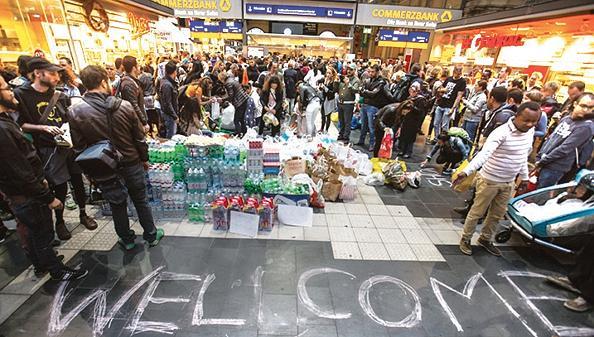
Willkommenskultur
Day 12, On the road
The German word Willkommenskultur was elected in Austria in December 2015 as “Word of the Year”. The term was all over the news back then and is still used today to describe a certain mindset in European society. But what does it stand for? And which cultural dimensions are surrounding it?
It was in the 2000s when the German political sphere brought the call for a pluralistic attitude to the middle of society. The general public started to realize that integration cannot function as a one-way street alone. Yet it requires collective efforts from both the refugees and the host society. This realization formed the foundation for the grassroots movement that welcomed refugees along the German border. It simultaneously led Chancellor Merkel to utter her famous words “Wir schaffen das” – We can do this. In cities like Munich, the meaning of these theoretic words could be witnessed in quick individual displays of solidarity when the flows of refugees hit German territory. Citizens opened their homes and wallets and donated their time to support the newcomers.
Not only during this trip now, but also three years ago, was the welcoming attitude of the people we met a pleasant surprise to me. Even in countries such as Hungary that seem to be stereotypically hostile towards refugees. Everywhere we went parts of the civil society stepped up to take over tasks that are usually assigned to the State. Food, Water, and other essential goods were and are collected, sorted, and distributed by volunteers and NGO’s all over the Balkan Route.
Yes, I did not encounter many people in the hotspots that we visited that were openly against welcoming refugees. I would love to though. Hearing all perspectives is nonetheless one of the goals of this project. So, if you have critical thoughts about “Willkommenskultur”, please contact us!
Meanwhile, read more about the expression here:
A critical article in German by Die Welt
2018 article in German about the development of civil initiatives since then
Best,
Florian